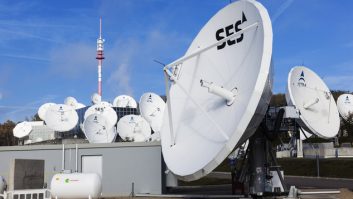BBC Wales is installing a networked digital news system, including desktop editing and production servers, based on Grass Valley systems; the system, which will be rolled out during 2006, covers eight regional centres across the country.
Delivering the keynote speech at the recent HD Masters conference at London’s IMAX cinema in Waterloo, Laven said that HDTV was now as inevitable as the transition to colour had been before it, and is similarly set to become the ‘new norm’ in television broadcasting.
“Europe flirted with high definition (HD) in the late 80s using a cumbersome analogue system,” adding that many in the industry knew that this pan-European government sponsored HD-MAC project was doomed as they witnessed digital gaining prominence.
“After the HD-MAC fiasco – and I don’t think that’s too strong a word – Europe turned against HD. But the European decision in the mid-90s to launch digital TV in standard definition (SD) rather than HD was right at the time. People sometimes ask me if Europe missed the boat by not launching HD earlier, and I usually point out that I don’t mind missing the boat if it’s the Titanic.
“Now the situation has changed. New devices such as Blu-Ray and HD DVD are poised to enter the marketplace and compete with broadcast television on quality. The key development for European HD compared to the earlier adopters worldwide is the advent of large affordable flat screen displays, which will be pivotal in promoting a faster consumer take-up.
“Indeed the latent demand for HD is already clear from the unprecedented sales of HD Ready screens before any HD content is available,” he added.







